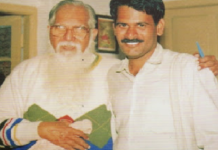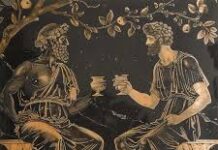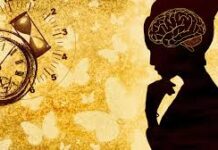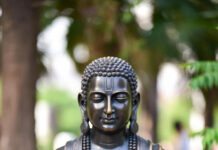
Dear J,
I have seen you only from afar. At a film event in Chennai, an awards ceremony, and a book release event. I have never spoken to you. A hesitation – what to speak about? How do I introduce myself? I think I haven’t yet qualified to be called your reader.
I reached your works through the anthology ‘Aram’ like many others. I read your fictions ‘Venkadal’, ‘Rubber’, ‘Pani Manithan’, ‘White Elephant’, ‘Ezhaam Ulagam’, the non-fictions ‘Munchuvadugal’ and ‘Indru petravai’, and the philosophical work ‘Hindu Gnana Marabil Aaru Dharisanangal’. Through them, I was able to feel that I was on an internal journey with you beside me. I am in conversation with you daily through your blog.
You are the reason for my love affair with postmodernism. I have been able to catch a glimpse of the heights that are beyond the reach of logic only through your creations. But I haven’t read your masterpieces, ‘Vishnupuram’ and ‘Venmurasu’. I feel I haven’t grown up to that level or simply haven’t reached there yet. That’s why I don’t think I can claim to be a serious reader of your work.
I have thought of writing to you many times but have failed. What should I write? What new things can I ask from a teacher, who writes as if he knows beforehand, what I think about writing and what I really need. I have felt happy considering several of your articles as written specifically for me.
I will write to you today without giving up, as usual.
My doubts:
- a) You have written quite a lot about the differences between Hindus and Hindutvites. You might have grown tired of it. My question is related to this. I can understand the difference between them very well. But why should I be proud to be a Hindu? In your essay on ‘Becoming Castes’, you wrote, “A man’s true worth is revealed only when he is judged on his individual personality”. By that yardstick, what have I done to be proud of other than being born a Hindu? Isn’t religion as narrow minded an attitude as caste?
- b) I approached Hinduism through the works of Ambedkar. My predominant sense of Hindus is that they are a group of castes. How can I be proud of being a ‘Hindu’ when a fellow Hindu is suffering? I can understand the difference between ritual customs and Hindu philosophy. But that understanding isn’t of use in assuaging anyone’s pain. When this is the situation, aren’t Hindus today really ignorant about the philosophy of Hinduism? What is there to be proud of in that state of ignorance?
I hereby present these doubts to you. I apologize if any of these is incorrect.
Yours,
Karuppan
[Vignesh Muthukrishnan]
Dear Karuppan,
I am publishing your real name along with your pseudonym (Karuppan). This is because, in our youth, we put on certain identities and think within their boundaries. We insist that others view us that way too. Through this, we restrict how others see us and avoid real questions being posed to us.
Your questions are genuine. I will not diminish either the questions or the sense of morality that they emanate from. May they continue to remain as potent as they are now.
*
Whatever your faith, you should learn it from scholars, its significant personages, and its primary texts. There are great personalities even in our tradition. The great sages have lived here.
Anything should be learned thoroughly and through a system. To learn something through its denunciation is to merely gather more ignorance. This applies to the Hindu religion, Marxism, or European atheism. One has to study a subject with genuine interest and an objective view, devoid of bitterness and prejudice. That is the path to knowledge. No one can attain true knowledge through bitter debate.
Why should we learn religion? For two basic needs. One, it is only in religions that the great cultural heritage of mankind remains preserved. Without Greek religion, there can be no European thought. Without the Old Testament of the Bible, one cannot truly understand European literature.
Second, for spiritual salvation. Human seeking and salvation have not occurred by happenstance. They have been here since the dawn of mankind. They have a heritage that defeats time. They live even today as archetypes, symbolism, and philosophy. Religion is the container they come in. Even the spirituality that transcends religion is meant to be realized via realizing and then transcending the spirituality contained within religion.
When there are hundreds of sages, great scholars, and a long lineage of philosophical texts available, if you insist on learning culture and spirituality from politicians, consider for a moment objectively where the real problem lies. This is not something that can be understood through politics, of any sort.
*
Why do I consider the identity and concept of Hinduism and a living tradition necessary in the first place? These are merely my views and I am here so that you may consider them.
I know for sure that human knowledge doesn’t exist merely within the boundaries of the temporal present. It is true that the political, sociological, and cultural contexts of the present day continuously add to the corpus of human knowledge. It is both inevitable and normal. But the process of knowledge itself is continuous. It has its beginnings in ancient history, even prior to the tribal ages, and has swelled over time. And it moves forward through us.
Please see, all thoughts and cultural activities have no intrinsic value unless they are seen through this lens. If the past holds no significance to us today, those who live tomorrow will not attach any significance to our culture and thoughts today. In that case, why should we think deeply about anything or engage in the arts?
Human knowledge has been evolving since ancient history, clashing within itself and reaching various equilibria, assimilating itself over time, and reaching us. Our thoughts and dreams are its mere extensions. Even those who remain chained to the present remain so as its extension.

Our traditions, which date back to antiquity, animate the minds of even those who are currently involved in day-to-day business and politics. Their rationalism notwithstanding, for questions that stump the average IQ, they will look for solutions in tradition. Even in day-to-day affairs, they will be repackaging and using solutions rooted in tradition, often unwittingly.
I am only stating that an intellectual should be informed about his tradition, research it and handle it with self-awareness. You can see from my travels that they stretch from archaeological icons to present-day cultures. It is because of this quest.
Religion houses most parts of traditional thought. Religion is not merely a set of beliefs. It is neither a set of rules for ritual sanctity nor a dogma. It is a compendium of wisdom. Whatever the religion, it is available today as the output of at least a thousand years worth of human intellectual activity. No sane individual can reject it outright.
A few religions, like the Hindu religion, Buddhism, and Jainism, can lay claim to real antiquity. They have been operating within human thought and the cultural spheres in an unbroken stretch lasting over two thousand years. They are a compilation of the thoughts, literary works, and artistic output of thousands of scholars and sages. They are the treasures of humanity.
The Hindu religion is more ancient than others. A part of it is from prehistoric times, from life during the Stone Age. Another part, from right in front of us. No other religion in the world possesses this unique quality. There is no other field in the world that provides the opportunity to study how human thought and the arts evolved over these many centuries. This fact is unmissable for anyone who bears no ill will and has a predisposition to a reading habit.
Let me give you an example. Among archaeological icons unearthed from the Stone Age, there is a famous figure of a hunter who holds his two hunted deer. Researchers name him the ‘Master of Animals’. This form has been found in all ancient civilizations, for example, in Mesopotamia and Egypt, in some form or another.
They call him the ‘harbinger of good fortune’. But it can also be viewed as a father figure who brings food when one is hungry. Maybe a father figure appeared in their dreams with food. This iconography belongs to an age that we cannot even speculate about.
Similar figures are found among the stone age symbols of India. The same form with minor modifications is found in the Shivalinga of Gudimallam, India’s most ancient form of Shiva. Shiva, holding a deer that hangs upside down, with a hunting weapon on the other hand. Later, the deer stood next to him, prancing. Among the various forms of Shiva, forms like Bhikshadanar and Grathamoorthy are significant.
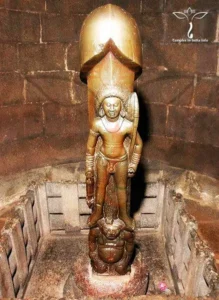
Consider this, a grand archetype that has evolved over fifty thousand years stands right in front of us today. Something that our forefathers conceived in their thoughts, gathered from their dreams and assimilated into a form. It sits in our village temple as a black, shiny stone. How precious is this? How many people in all of humanity have inherited such a gift from their respective traditions? [See Stone Age Rain]
It makes me feel like a speck of dust, a mere bubble in the fabric of time. At the same time, it gives me pride to be someone who inherits an unbroken tradition of humanity that spans thirty thousand years. Why should I forgo this? What do I stand to gain from that?
I become a part of a grand tradition when I identify myself with it. The identity that it gives me fuels grand dreams. Which identity should I adopt by forgoing this? The ones that politicians conjure up for us? Or the identity as a consumer that technology wants me to assume?
In Europe and Central Asia, Christianity and Islam destroyed the pagan religions that existed there, leaving no trace behind. Today, scholars are expending a stupendous amount of effort to reconstruct them bit by bit. This effort has been going on for the past two hundred years. You can get a glimpse of that grand effort by merely searching on the internet.
In such a situation, an ancient religion that lives today almost unmutilated, after all these years, is a great cultural treasure. What a grand fortune it is for humanity. Those who call for its destruction can only be ignorant fools.
The compendium of wisdom and cultural content within the Hindu religion is mind-bogglingly grand. At least two hundred philosophers could be named from within it who would be unmissable in any list of contributors to human thought. We can come up with a list of 300 outstanding creators who deserve recognition by humanity. The list of sages is far greater.
There is no disgrace in counting oneself as a member of this religion. It is a matter of pride. We have been taught that it is reprehensible; those who taught us have ulterior motives. They are those who have destroyed a pristine part of humanity already and are now bent on destroying what is left.
When I perceive myself as a continuation of this grand effusion, I become the beneficiary of a great wealth of culture and human thought. I cannot forgo this. That is the reason why I am a Hindu. It is for stating this that I have been vilified, abused, hounded, and shunned on several levels in the past three decades by politically brainwashed gangs. But I cannot state it. If I stand to lose my life one day due to this, I will consider it my homage to my teachers.
*
Archetypes could be termed a subtle legacy of human knowledge and art. [Archetype] It exists in many forms, such as mythology, images, beliefs, and legends. Only through archetypes can a human mind delve deep and explore its fundamental constitution.
Let me put it this way: to converse about day-to-day issues, ordinary identities and symbolism are sufficient. To peer into the fundamentals of human existence, we need archetypes. To ponder as an individual, day-to-day issues are sufficient. To think as a human mind that is several millennia old, you need archetypes.
These archetypes have their origins in tribal life and have gradually evolved. They cannot be created anew, they need to evolve with time. They are born out of our quests and fears, and they have no logic or order. They are born out of our eternal searches, fears, and revelations. They reside within our religions.
In a religion as ancient as the Hindu one, within which tribal cultures continue to exist intact, archetypes are nurtured and kept alive. They are great treasures for any thinker or creator. They constitute his soul and assist him in moving forward.
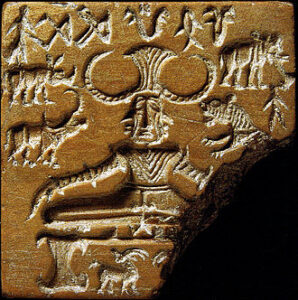
Europe’s High Renaissance began with its unearthing archetypes from its pagan cultural heritage that had been buried deep. European thought and its arts multiplied and assumed grand proportions from that start. European philosophy began from there and created the sciences. Our hoariness lies bare before us for everyone to see. We have turned our backs to it because someone told us so.
To reach those archetypes, I need to identify with them. I should perceive myself as an extension of their existence. That is why I am a Hindu.
I am presently reading British Metaphysical poets from the 17th century. They are the pioneers who created the foundations of modern poetry all over the world. The pagan cultural underpinnings that are evident across all of them is astonishing. One cannot understand them without these cultural elements.
That pagan culture is very similar to the Hindu religion due to its heterogeneity, attitudes toward nature and universality. The Hindu religion is a segment that has survived today from that grand cultural expanse that went extinct. What prevents us from claiming it as ours? Who is stopping us?
Why should I discard this grand continuity? What will I be left with instead? Simple prophetic religions that have been dispatched to us from Europe and Central Asia; their beliefs in sacred texts. Isn’t it to coerce me towards them that a mindless opposition to the Hindu religion is being propagated here?
These prophetic religions have caused enormous destruction across the world. They have uprooted South America, Australia and Africa. They created never ending wars, destroyed themselves from within and continue to do so even today. They perpetuated slavery for several centuries. They uphold racism. Ambedkar himself has written about them in great detail.
Going strictly by intellect, I would have to accept either the values of Utilitarianism or Enlightenment that emerged during Europe’s Renaissance. They were created from pagan roots in Europe. Why should I not seek them out from my own roots here? For the values of Enlightenment, won’t Shankara be enough? For utilitarianism, wouldn’t Kapilar or Ganadhar be enough? Why should I be a borrower of thoughts? Who stands to benefit with this?
*
Now let’s go to your questions. Is the Hindu religion built upon the caste system?
Yes, it emerged as groups of people organized into castes that one was born into over the course of its evolution. It wasn’t by conscious design. When the Hindu society was formed by uniting hundreds of tribal groups on the basis of common beliefs and customs, they were cast into an hierarchy based on their numbers, martial strength and societal dominance. Later, this was given an explanation in terms of philosophy. This is what we refer to as the caste system.
There exists no society in the world that did not have a birth-based hierarchy in its past. Neither is there a religion which didn’t propound one. Because this is a characteristic of feudalism. It is found in each place in the world in a different form. In India, it exists as the caste system. There definitely was oppression. But history will state that similar oppression existed in the past everywhere in the world.
Feudalism is coming to an end worldwide. The social structures of feudalism will also die along with it. The mindset and attitudes that reinforce them will die out too in a few more generations. Caste too is dying as we can witness. It is no longer the deployed power of social hierarchy. It is merely an identity to rally under for politics. That could die out too, we need to ensure it does.
You are distorting these facts of history into an assertion that ‘Hinduism is nothing but the caste system’. This is a common enough distortion in our domain of ideas. Youngsters learn this from politics, via a planned propaganda.
If one were to say that Christianity and Islam are nothing but the horrors of crusades and racism, I will never accept it. They happened to be there during the long history of those religions. But those religions are grand compilations of cultures and spiritual counsel. I believe that Christ indeed is the Light of the World.
The Hindu religion is not merely the caste system. Caste is only a small part of its social structure. Hindu philosophy doesn’t base itself on caste. Nor does the basic wisdom of Hinduism rely on caste. If caste were to be abolished entirely tomorrow, the Hindu religion will move forward without any loss. In fact, it will flourish.
If a young person believes that the Hindu religion’s philosophy, spirituality, literature and the arts entirely exist only because of the caste system, no matter which faction he belongs to, he is a moron. If he shuts himself out of the arts, literature and philosophy of the Hindu religion merely because of the caste system, he is guilty of rejecting his own history.
Throughout the history of this religion, castes have continuously moved within the hierarchy. There have been social revolutions that brought in major changes within the caste system. Nomadic castes have established kingdoms and become Kshatriya castes. New brahmin castes have emerged. The brahmin caste that we have today is an amalgamation over time of several castes with priestly professions. Today, as the caste system loses its grip over society, the Hindu religion has not weakened in any way. It has only grown.
Scholars belonging to a political ideology might have interpreted history in a particular perspective. The demands of political exigencies and historical perspectives of their times might have dictated it. They might have had their reasons and we understand. But what we need is a historical perspective, a cultural perspective that we seek for ourselves.
Religion offers spirituality. The society that receives that spirituality is responsible for fleshing out philosophy, arts and science from it. If the failures of a society can be laid at the door of religion, why can’t it be laid at the door of its intellectual movements, arts and literature and so on?
If the Hindu religion had not done anything for the oppressed people, which other religion has done so? Religions that have perpetuated slavery for centuries? Religions that have subjugated other geographies, killed and uprooted millions of people who lived there? Or religions that provided a defense for such actions for centuries? Or religions that even today direct how racism operates?
Look back at history. Even from your perspective, the three Indian religions would emerge with the least list of crimes in history among all the religions.
Leaving aside religions, let’s consider modern thought for a moment. Modern democracy was born in the cradle of European thought. Modern literature, arts and philosophy too. But the same Europe gifted us colonialism. It were European countries that pushed the world towards famine and ravaged them. The number of people who perished from hunger pushed by European countries is several times more than the casualties of the world wars. Can we throw out the entirety of European thought as they are contaminated by colonialism?
We can discard these as the past. But is it any different today? Where does post-modern thought that you speak of come from? Primarily from France. From Germany, Britain, and the USA. From the academic institutions there. Professors who receive ample salaries and grants create them. Who funds those institutions? Large commercial interests, corporations, and the government there.
What business do these commercial interests and corporations engage in? What is the primary source of income of the governments there? Establishing their pawns as rulers in African and Asian countries and then exploiting their natural resources. Exporting arms and ammunition to African and Asian countries and exploiting them. To create internal strife and conflicts between nations so that there are incessant wars.
Isn’t it true that these facts didn’t prevent you from accepting their thoughts? These thinkers don’t have the responsibility to acknowledge how their grants and funds are earned, right?
By your yardsticks, there has been oppression, injustice and exploitation here from the Sangam Era (approx. 300 BCE to 300 CE). Hence there is no need for Thirukkural. Sangam literature is useless. All of philosophy here serves no purpose, isn’t it?
No, you wouldn’t quite say that. But you want the Hindu religion to take responsibility for the caste system, or the current exploitation that we see in contemporary society. That would be sufficient reason to reject it entirely, isn’t it? Please think about who is responsible for creating that mindset in you.
I will not commit the mistake that you are making. Thinkers from Sartre to Foucault do not appear irrelevant to me simply because the French government happens to operate as an arms trade organization and the University of Sarbonne is run with donations from arms dealers. European thinkers are not alien to me simply because Europe was a colonizer.
I will not denounce the Christian faith for the fact that Christianity spread slavery and destroyed aboriginal peoples throughout the world. I need its spirituality. It exists on a different plane altogether. I need Christ under all circumstances.
Spirituality, philosophy and the arts that exist within a religion operate on a different plane of idealism. The practical construct called religion operates in a worldly plane. This idealism seeks to control and guide the mundane. But the worldly affairs are never under the absolute control of idealism. No society in the world will be left for our consideration if it were judged solely on its worldly activities and its idealism rejected due to it.
We can receive from religion its idealism. We can combine it with contemporary idealism and take it forward. The structures that religion creates in the worldly plane can be reconstructed based on this idealism. All the reformers who evolve within religion have done the same. From Shankara, Ramanuja till Narayana Guru and Vallalar.
*
Lastly, all these that I have spoken about belong to the domains of thought, arts and literature. There exists a quest for human salvation beyond these. I call it unified wisdom and fulfillment. It is a state of perfection attained through life. I sought and found it in Vedanta. Till some time back, it was something that I had learnt and was diffident about. But today, I have no doubts. Vedanta is a path to Truth.
Vedanta did not ‘grant’ me the truth, it only gave me a path to pursue, through the right teachers, right texts, symbolisms and meditation. Hence, I am a Vedanthin. Thus I am a Hindu because Vedanta is a branch of the Hindu religion.
You don’t have to be proud ‘merely’ because of being born into the Hindu religion. But you may rejoice that you have the opportunity to learn the Hindu religion and it is possible that some basic images/archetypes are already within your subconscious. One can learn, and then feel proud.
Jeyamohan
Translated by Gokul


